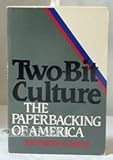 Ya see, I don't mind this so much, and I may even not scoff at the promises made by Apple boosters (though I'm not convinced of all things Mac, and have seen some diehards become quite disappointed in the last year or so with various Apple products). This is a pretty large reader - the article says 10 inches diagonally, but in one photo with a guy holding it, it looks larger. If it's going to have color graphics and multiple columns, it will need to be a decent size. So fine, bring it. Newspapers and magazines and books can use this thing and feel their content is being displayed in a respectable way.
Ya see, I don't mind this so much, and I may even not scoff at the promises made by Apple boosters (though I'm not convinced of all things Mac, and have seen some diehards become quite disappointed in the last year or so with various Apple products). This is a pretty large reader - the article says 10 inches diagonally, but in one photo with a guy holding it, it looks larger. If it's going to have color graphics and multiple columns, it will need to be a decent size. So fine, bring it. Newspapers and magazines and books can use this thing and feel their content is being displayed in a respectable way.What concerns me more is this kind of news, about Sony working with Smashwords and Author Solutions to adapt self-published books to their readers. I guess it's not the news that worries me, but the idea so celebrated by many folks that anyone can upload files and make books available on readers, and then HA! They are as good as your fancy-pants published books that go through a whole, ya know, editorial process.
I like the editorial process. I make my living off of it. And I find it disrespectful when it is dismissed so casually by folks in such a rush to get their words into print, or onto screen. Eliot Van Buskirk, who wrote this article on Sony, states,
I really dislike crowd sourcing. I don't trust crowds. I see this as just civilized, not elitism. Crowds have led to things like lynchings and putting people into camps, and a whole slew of the worst kind of reality tv programming on VH1. Why would we want to entrust crowds with our reading choices?When books and shelves are digital, rules about scarcity go out the window, allowing unheralded scribes to bubble to the surface based only on the crowd’s reaction — just as many self-motivated bloggers have become old media mainstays and video entrepreneurs have become YouTube phenomenons.
To publish your own book (or other people’s books if you’re a publisher) through Smashwords, one uploads the manuscript in a specified Microsoft Word format, sets a price, and selects affiliates: Stanza on iPhone, ldiko on Androi, Barnes & Nobles’ website, and now the Sony eBook Store. After that, there are no editors, publishers, copyeditors or other gatekeepers to worry about — or, for that matter, to improve your work — just readers.
I worry less about Apple, which seems to have found a product that replicates the publishers' efforts in some ways with a device that, I hope, will highlight design and placement, as compared to the devices now that just display text, in one font, with no artistry.
David Crotty gets into what crowds often settle upon in making choices, in this post over at The Scholarly Kitchen. It is not a hopeful post, I can tell you, but I appreciate how the comment section is playing out. The post is about "the good enough revolution" as described in this Wired piece by Robert Capps, which offers "a variety of markets where highly advanced, feature-laden products are shunned in favor of cheap, low-quality products." The most obvious example is mp3 files over better sounding CD and album tracks. I'm constantly amazed at the tinny noise coming from college kids' headphones. Wouldn't they rather listen to that music in slighly higher quality form? Often not, which is the point. They settle, and they're fine with it. Crotty considers what this may mean for e-books:
E-books lack much of what a paper book offers: color, layout, typography, design, and actual ownership and the benefits that come with it (re-sale, loaning, etc.). The question is whether these things are really necessary, and whether the lower quality e-books are good enough for most readers, particularly given their lower price point and advantages in convenience and immediacy. If historical precedent is any indicator, the answer is in the e-books’ favor. While e-books open up new avenues for content and interfaces, cheap dumps of unformatted text may end up the dominant form.
Yes, "cheap dumps of unformatted text" is exactly what I meant, exactly what I hate.
Ted Freeman from something called Atypon Systems adds a comment later that I found amusing:
Another “good-enough” product to add to your list, David: blogs. We now seem to think that reading 500-word hastily-written opinion pieces by people who don’t read widely or write very well can substitute for finding (and sometimes actually paying for) thoughtful, carefully planned and well-written articles and books by knowledgeable people who look beyond the latest fads and press releases. As someone who scans dozens of blogs and a smaller number of Twitter feeds every day, I have reluctantly come to accept as “good enough” the half-baked observations about technology and publishing that pass for insight these days, and I accept them because it is my job to ferret out the significant trends in these subject areas from all the noise that is the blogosphere. One gets better at knowing where to look for the likely nuggets, but even the good stuff is often only “good enough.”A fair point... and I apologize for wasting your time, good reader, when you could have been reading a more quality publication, online or otherwise!

